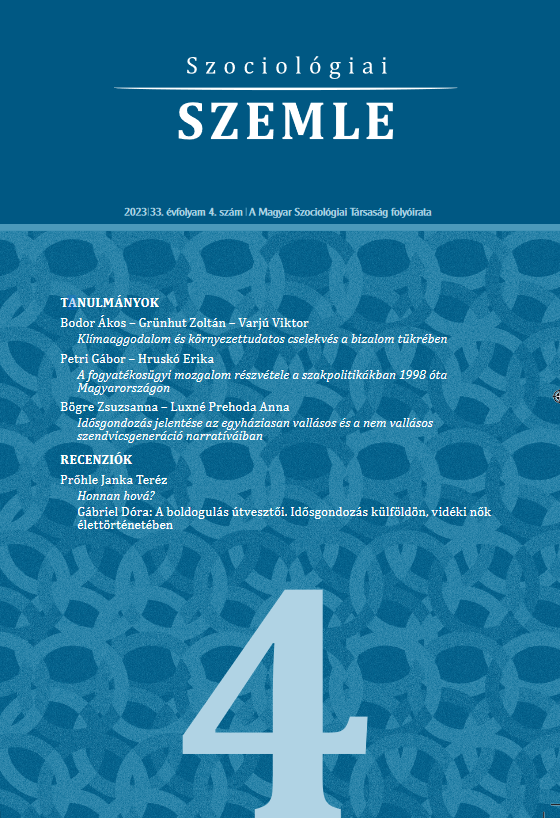The Meaning of Eldercare in the Narratives of the Religious and Non-religious Sandwich Generation
Abstract
The term sandwich generation refers to middle-aged adults who have to care for both their elderly family members and their children who live with them. This overburdened situation has attracted our interest, with a focus on the relationship with the older generation. We carried out a comparative micro-sociological study in which we interviewed members of the religious and non-religious sandwich generation about their responsibilities and narratives of their parents’ caregiving decisions. We were interested in the similarities and differences between the narratives of the two groups. In our analysis, we attempt to answer three research questions. 1) How does the word “helping” appear in the narratives as a precursor to caring? 2) What characterises the relationship of the religious 3) and non-religious sandwich generation to helping/care? Overall, religious people perceive helping their elderly parents as more emotionally taxing, as an issue that causes more and longer dilemmas. They constantly self-monitor the quality of their helping role. In parallel, we see that for non-religious people, the development of a future care plan is more important. It is important to emphasise that the difference in the caring role of the two groups we studied is not that one group neglects its elderly.





